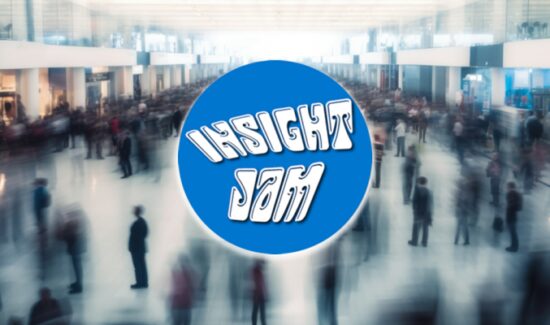2021 CRN Storage 100: 16 Software-Defined Storage Vendors to Consider

 IT news and analysis outlet CRN recently released its 2021 Storage 100, a ranking of innovative storage providers that offer solutions and technology that span the scope of business user requirements. The list is made up of established and emerging storage vendors. The list is broken down into four distinct product categories that include vendors that focus on backup and restore, vendors that develop the components used to build storage solutions, vendors that manage data, and software-defined storage vendors.
IT news and analysis outlet CRN recently released its 2021 Storage 100, a ranking of innovative storage providers that offer solutions and technology that span the scope of business user requirements. The list is made up of established and emerging storage vendors. The list is broken down into four distinct product categories that include vendors that focus on backup and restore, vendors that develop the components used to build storage solutions, vendors that manage data, and software-defined storage vendors.
Though the Storage 100 is aimed at highlighting software vendors for the purposes of solution provider partnering, Solutions Review is most interested in highlighting the vendors that offer unique products and platforms for enterprise organizations. As such, we’ve read through CRN’s complete rankings, available here, to analyze the trending software-defined storage vendors we think matter most. For an even deeper breakdown of data storage software, tools, vendors, and platforms, consult our popular Buyer’s Guide.
Cloudian
Cloudian is an independent provider of object storage systems, offering S3 compatibility along with a partnership ecosystem. The vendor’s flagship solution, HyperStore, is a scale-out object platform designed for high-throughput object storage workloads. It provides scalability, flexibility, and economics within the data center. HyperStore also delivers an add-on file gateway to manage file workloads. Additionally, Cloudian’s data fabric architecture allows enterprises to store, find, and protect object and file data across sites. These processes can take place both on-prem and in public clouds within a single, unified platform.
DataCore
DataCore Software specializes in storage virtualization, storage management, and storage networking. The vendor enables users to virtualize storage, expand capacity, enhance access to data, and centralize and automate storage administration for Windows, UNIX, Linux, macOS, and Netware systems. Its HCI platform, DataCore SANsymphony is mainly used for mission-critical, core IT, and edge use cases. The vendor recently delivered integration with backup software and improvements to its predictive analytics solution, DataCore Insight Services. DataCore also integrates hyperconverged storage with storage area networks (SANs) and servers, and supports the independent scaling of compute and storage resources.
DDN
DDN is a provider of scalable storage and processing solutions, as well as professional services. Organizations have the ability to use a range of DDN storage platforms to capture, store, process, analyze, collaborate, and distribute data, information, and content at a large scale. The solution is offered in two appliance options and is also available as a software-only distribution. The vendor provides services to financial services firms, healthcare organizations, energy companies, government facilities, and cloud service providers.
Dell Technologies
Dell EMC enables digital transformation through hybrid cloud and big data solutions built on a data center infrastructure that brings together converged infrastructure, servers, storage, and cybersecurity technologies. The provider’s featured solution, Dell EMC Unity XT, offers multi-cloud enablement and an NVMe-ready design. Users are enabled to support virtualized applications, deploy unified storage, and address Remote-Office-Branch-Office requirements. The platform’s Unisphere management GUI also allows users to easily configure and manage storage. The vendor also offers file and object storage solutions. Dell EMC also recently released its PowerScale solution for unstructured data.
Hewlett Packard Enterprise
Hewlett Packard Enterprise (HPE) is an industrial technology company with a portfolio that includes cloud, data centers, and workplace applications, among others. The vendor differentiates itself from its HCI competitors through its Nimble disaggregated HCI (dHCI) platform. The solution enables IT professionals to scale storage and compute resources independently of each other, helping their businesses to circumvent wasteful spending. Nimble Storage dHCI is a good fit for organizations that need to support applications with unpredictable data growth, and applications that need a high level of data resiliency or storage performance.
Hitachi Vantara
Hitachi Vantara assists enterprises with storing, enriching, activating, and monetizing their data. The provider offers four solutions under the umbrella of object storage, namely, Hitachi Content Platform (HCP), HCP Anywhere, Hitachi Data Ingestor (HDI), and Hitachi Content Intelligence. Each provides object storage, file synchronization, sharing, end-user data protection; a cloud file gateway; and search and analytic insights. The HCP portfolio is a component of broader strategic initiatives for data management and analytics and offers an ecosystem that spans a range of verticals and solution domains. The vendor is a wholly–owned subsidiary of Hitachi, Ltd., and also offers backup and disaster recovery solutions.
IBM
IBM offers a wide range of technology and consulting services, including predictive analytics and software development. The provider offers a range of storage options, including flash storage, Software-Defined Storage (SDS), data protection software, hybrid storage arrays, Storage Area Networks (SAN), and tape storage. Through these products, IBM’s solutions support hybrid cloud storage, converged infrastructure, and virtual infrastructure. Additionally, the platforms allow for storage for blockchain, artificial intelligence, private cloud, and SAP.
Infinidat
Infinidat provides data storage software designed to store and protect petabytes of data. The provider specializes in storage, big data, cloud, NAS, SAN, and object storage. Infinidat’s primary storage portfolio is made up of InfiniBox, which offers high-capacity, performance capabilities, and resilient storage architecture. in the last year, Infinidat has made enhancements to its operating system, including the introduction of active-active replication, concurrent three-site replication, security improvements, and a new Kubernetes CSI drive.
NetApp
NetApp is a storage, cloud computing, information technology, and data management solution provider. In addition to predominantly offering on-prem storage infrastructure, the provider also specializes in hybrid cloud data services that facilitate the management of applications and data across cloud and on-prem environments in order to accelerate digital transformation. The vendor’s solution, StorageGRID, is an object storage platform whose primary access method is the Amazon S3 API. The tool offers hybrid cloud workflow and adheres to SEC and FINRA regulations.
Nutanix
Nutanix provides cloud software, compute and storage infrastructure, and hyperconverged infrastructure solutions for implementing enterprise virtualization without complex and expensive network storage, whether it is SAN or NAS. Nutanix Complete Cluster’s converged compute and storage architecture can scale to manage petabytes of data while running thousands of virtual machines. Nutanix’s storage solution, Nutanix Acropolis, offers built-in AHV virtualization, networking services, platform services, and enterprise storage capabilities such as data protection and disaster recovery features. The provider recently raised $750 million from Bain Capital Private Equity.
Pivot3
Pivot3 provides Dynamic Hyperconverged and PCIe Flash Arrays, as well as hybrid cloud and Internet of Things (IoT) solutions in order to deliver maximum resource utilization. The vendor’s offerings are optimized for server virtualization, virtual desktop, data center consolidation, video surveillance, business continuity, disaster recovery, and remote and branch office. Pivot3’s storage solution provides security, resilience, and management at scale for the user’s environments. Powered by its Intelligence Engine, the vendor automates the management of multiple mixed application workloads and reduces unplanned downtime.
Pure Storage
Pure Storage is an all-flash enterprise storage provider that enables broad deployment of flash in data centers. Its technologies enable Software as a Service (SaaS) organizations, cloud service providers, and enterprise and public sector users to deliver secure data to power their DevOps and modern analytics environments in a multi-cloud environment. The vendor’s platforms accelerate random I/O-intensive applications such as server virtualization, desktop virtualization (VDI), database (OLTP, rich analytics/OLAP, SQL, and NoSQL), and cloud computing. Pure Storage also enables users to adopt next-generation technologies, including artificial intelligence and machine learning, to maximize the value of their data. In 2020, Pure Storage acquired Portworx for $370 million.
Qumulo
Qumulo is an enterprise data storage startup whose solutions are available on Qumulo storage servers, on hardware from companies such as Dell and HPE, and natively on AWS in the public cloud. The provider was formed by professionals from Isilon Systems, Adobe, and Wily Technology. The vendor offers Qumulo File Fabric (QF2), a scale-out NAS tool that runs on-prem and in the public cloud, as well as preintegrated Qumulo Core appliances. Additionally, the provider offers software that is available on AWS Marketplace, third-party hardware, and standard hardware that Qumulo sells directly to customers.
Scale Computing
Scale Computing provides hyperconvergence for midsized businesses. The vendor’s HyperCore3 (HC3) platform integrates servers, virtualization, and storage into a single solution that is highly scalable. HC3 is typically used as an edge infrastructure or virtualization platform. Scale Computing’s product differentiates itself through its self-healing features. HC3 automatically identifies problems and takes corrective action without the need for human interaction. Additionally, the solution was developed to be an all-inclusive system, referred to as “a data center in a box.” Scale Computing also recently expanded its support for server hardware OEMs, launched the HE150 as a low-cost edge solution, and released integrated VDI and resilience solutions.
Scality
Scality is a venture-backed software provider that delivers large-scale storage management and infrastructure solutions. The vendor’s flagship solution, RING, delivers integrated file and object storage for high-capacity unstructured data workloads, runs as software on commodity hardware, and makes x86 servers scale to hundreds of petabytes and billions of objects. Additionally, RING has an end-to-end parallel architecture and a patented object storage core that increases availability and durability. The platform integrates with applications through standard storage protocols such as NFS, S3, OpenStack Swift, and Cinder. Scality differentiates itself from other vendors through its integrated file and object architecture.
Silk
Silk, formerly Kaminario, provides all-flash storage and was founded by storage professionals from Dell EMC, NetApp, and IBM. The provider’s data platform delivers real-time analytics, data center automation, and assured data access, allowing users to protect their digital ecosystem. Silk’s flagship solution is now in its sixth generation. The platform provides scale-out and scale-up architecture, which enables organizations to grow in capacity based on their needs. The vendor works with a network of resellers and distributors on a global scale.
Read the 2021 CRN Storage 100.
- The 9 Best Cloud Storage Courses on Udemy to Consider for 2025 - January 1, 2025
- The 6 Best Cloud Storage Courses on LinkedIn Learning to Take in 2025 - January 1, 2025
- The Best Data Storage Courses on Udemy to Consider Taking - January 1, 2025





















